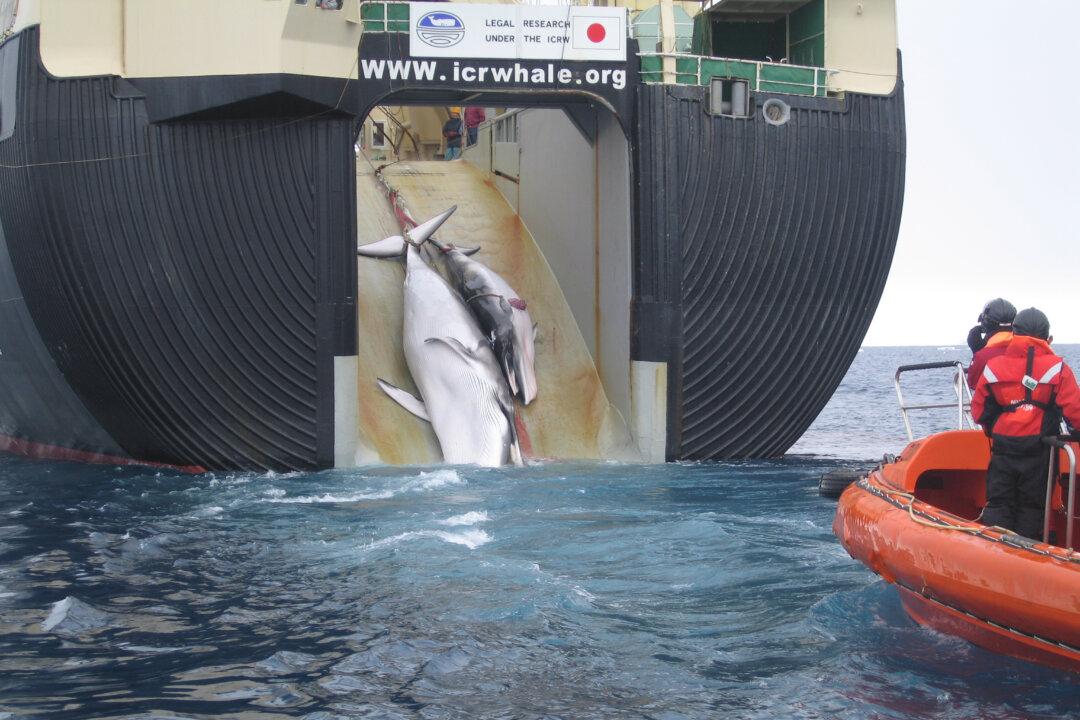Japanese whalers last week brought back 333 whales from their “scientific research” expedition in Antarctic waters—their first since an international court ruling that deemed their annual Antarctic whaling program illegal.
Japan defied the ruling and sent out four ships on Dec. 1, 2015, saying they needed to kill whales to gain important scientific data.
Of the 333 minke whales killed, 230 were females—of which 209 were pregnant—and 103 were males, according to Japan’s Fisheries Agency.
Japan simply ignores international law ... and continues to slaughter whales with impunity.
, Sea Shepherd





